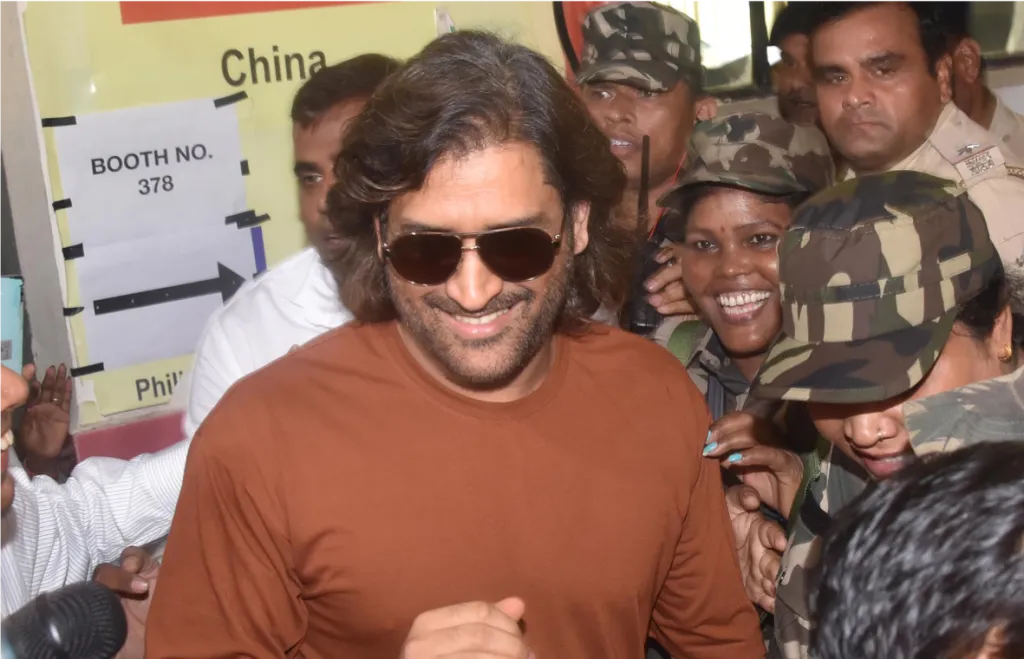In a recent discussion, MS Dhoni, the celebrated two-time World Cup-winning captain of the Indian cricket team, addressed the peculiar relationship between social media and public relations. His perspective is shaped by a long and illustrious career in cricket, combined with a distinct approach to fame and personal branding.
Dhoni articulated his longstanding ambivalence towards social media platforms. Despite the increasing emphasis on digital presence among athletes, he has consistently maintained that his performance on the field should speak for itself. His managers often encouraged him to utilize social media for public relations purposes as their popularity surged after he began his career in 2004. However, Dhoni has remained steadfast in his belief that excellence in cricket is the most effective form of public relations. He believes that maintaining focus on the game eliminates the need for external validation through social media metrics, such as follower counts.
The veteran wicketkeeper-batter, who made his international debut around two decades ago, highlighted the importance of prioritizing cricket over social media distractions. His approach reflects a philosophy centered around authentic engagement, where he shares updates only when meaningful contributions align with his cricketing journey. This mindset allows him to disengage from social media stressors, ensuring that his attention remains centered on his performance.
At 43 years of age, Dhoni prepares for his 18th season in the Indian Premier League (IPL), where he will showcase his skills for the Chennai Super Kings once again. He candidly admitted that sustaining peak physical fitness levels has become a more challenging endeavor. Unlike fast bowlers, who require rigorous physical exertion and endurance, his fitness regimen is tailored to his unique demands as a wicketkeeper and batsman.
Dhoni has adopted a disciplined approach to his diet and fitness. He emphasizes the importance of engaging in various sports outside of cricket, such as tennis, badminton, and football, to keep himself active and mentally stimulated. This diversified involvement in sports not only supports his fitness but also maintains his enthusiasm for physical activity. Engaging in such diverse sports has become a crucial part of his routine, allowing him to manage his fitness effectively while enjoying the process.
Reflecting on his career, Dhoni expressed that he does not miss international cricket. He believes that he has fulfilled his responsibilities to the nation and witnessed significant achievements that allowed him to leave an indelible mark on Indian cricket. His perspective stems from a deep-rooted belief in making well-considered decisions. Once a decision has been made, he feels there is no merit in ruminating on it. Dhoni's contentment is pronounced, as he finds solace in the experiences and memories he has created throughout his career.
Life after retirement has been rewarding for Dhoni. He noted that he has enjoyed quality time with friends and family, allowing him to explore hobbies such as motorcycle riding. These activities provide him with joy away from the cricketing spotlight, reinforcing the importance of balance in life.
Under his leadership, India achieved remarkable success, including reaching the pinnacle of the ICC Test rankings. Dhoni remains the only captain in cricket history to have led India to victories across all three major ICC limited-overs tournaments: the T20 World Cup in 2007, the ODI World Cup in 2011, and the Champions Trophy in 2013. These accomplishments underline his tactical acumen and ability to foster a winning mindset within teams.
The captain attributes a significant portion of his success to the guidance and sacrifices made by his parents and the support of close friends. He acknowledges the crucial role his upbringing played in instilling discipline, emphasizing that one's chosen social circle significantly impacts personal growth and perspective.
In terms of his captaincy statistics, Dhoni steered India through 200 One Day Internationals, achieving victory in 110 of them, while experiencing 74 defeats and five no results. In the realm of T20 Internationals, he led the team in 74 matches, with India securing 41 wins under his guidance.
Dhoni stresses the importance of focusing on controllable factors in cricket. By avoiding unnecessary complexities, he argues, players can simplify their approaches to the game. He highlights that the essence of batting lies in the ability to observe the ball and respond effectively to what is delivered. For Dhoni, controllable elements encompass aspects like practice routines, nutrition, fitness levels, sleep quality prior to matches, and hydration status.
In conclusion, MS Dhoni’s insights encapsulate the mind of a cricketing legend who has navigated the complexities of fame and performance with grace and discipline. His unwavering commitment to the fundamentals of cricket and personal integrity defines not only his career but also serves as a source of inspiration for emerging cricketers and fans alike. In an era where social media influences the perception of athletes, Dhoni's preference for performance over publicity is a testament to his profound understanding of the game and personal branding.

